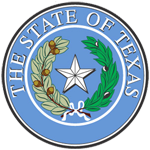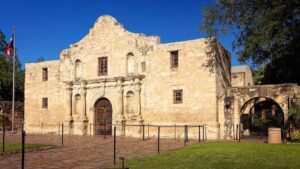- The Texas College of Medicine located in Galveston was opened in 1891.
- At that time, the distribution and use of unclaimed human cadavers for teaching and research was illegal in the State of Texas.
- Abuse of a corpse is still an offense in Texas (Texas Penal Code, Sect. 42.08)
- First anatomical bill was passed in 1907 by the Texas State Legislature (HB 264) creating the Anatomical Board of the State of Texas
- Purpose of the Anatomical Board was to regulate the distribution of cadavers among institutions and individuals eligible to receive cadavers, approve facilities where cadavers were to be held and dissected, and to maintain records of cadavers which came under the supervision of the Board.
- First Texas Transplantation Law
- HB 264, 1959, 56th Legislature, Regular Session
- Stipulated for organs to be used in transplant surgeries
- Forerunner to the Uniform Anatomical Gift Act – currently THSC, Chapter 692A
- In 1961 the Legislature amended the statute to broaden the board’s jurisdiction to include bodies “willed” for the purpose of advancing medical science.
- The board collected fees for the receipt of cadavers from the approved institutions although they had no statutory authority to either set or collect these fees.
- Even though the initial authority of the board was over all the afore mentioned educational institutions, the board only had direct control of the bodies donated to the board itself, not those donated to individual institutions.
- Anatomical Board of the State of Texas
- In 1985 the Legislature again amended the statute (SB 201, 69th Legislative Session) following Sunset Review
- Highlights of these changes were
- reducing the number of board members from two to one representative from each school,
- specified a two-year term of office for both members and officers,
- gave the board statutory authority to collect fees,
- made the anatomical board an approved donee under the Anatomic Gift Act,
- allowed the board to promulgate rules for the transfer of bodies to approved institutions outside the State of Texas,
- clarified the board’s authority to inspect and approve institutions and facilities for the receipt and use of cadavers,
- authorized the board to revoke authorization of an institution to receive and use cadavers rather than requiring a penalty bond to ensure proper use of cadavers,
- removed any authority of the Anatomical Board over animal experimentation, and
- exempted the Anatomical Board from the State Funds Reform Act of 1981 thus allowing the board to continue to deposit its funds into a local bank account under control of the Secretary-Treasurer
- Anatomical Board of the State of Texas
- The Anatomical Board has operated under the provisions of the 1985 revisions of THSC, Chapter 691 with minor changes since then
- Requirement for Sunset review was eliminated in1989 when the Health & Safety Code was codified in HB 2136, 71st Legislature
- SB 1214, 2015 changes to THSC Chapter 691 and 25 TAC Part 4 to allow Forensic Science educational programs that had autonomous Willed Body Programs to operate under control of the Anatomical Board and to allow Willed Body Program specimens to be transferred to recognized Search and Rescue organizations for training of S&R dogs and personnel.
- In 2009, the Revised Uniform Anatomical Gift Act (THSC 692A) allowed donations to eye and tissue banks, with the use of whole-body donations to be coordinated by the Anatomical Board.
- Enabling legislation is in the Texas Health and Safety Code
- Chapter 691: Anatomical Board of The State of Texas
- Chapter 692A: Texas Anatomical Gift Act
NOTE: The legislature recently amended Ch. 692, giving the Anatomical Board responsibility for coordinating all whole body donations in the State of Texas. The Board is currently defining its policies and procedures for managing this new responsibility.
- Information about the donation process is available on the Donor page.
- Rules are in the Texas Administrative Code
- View the current Texas Administrative Code
- Follow Title 25, Part 4


